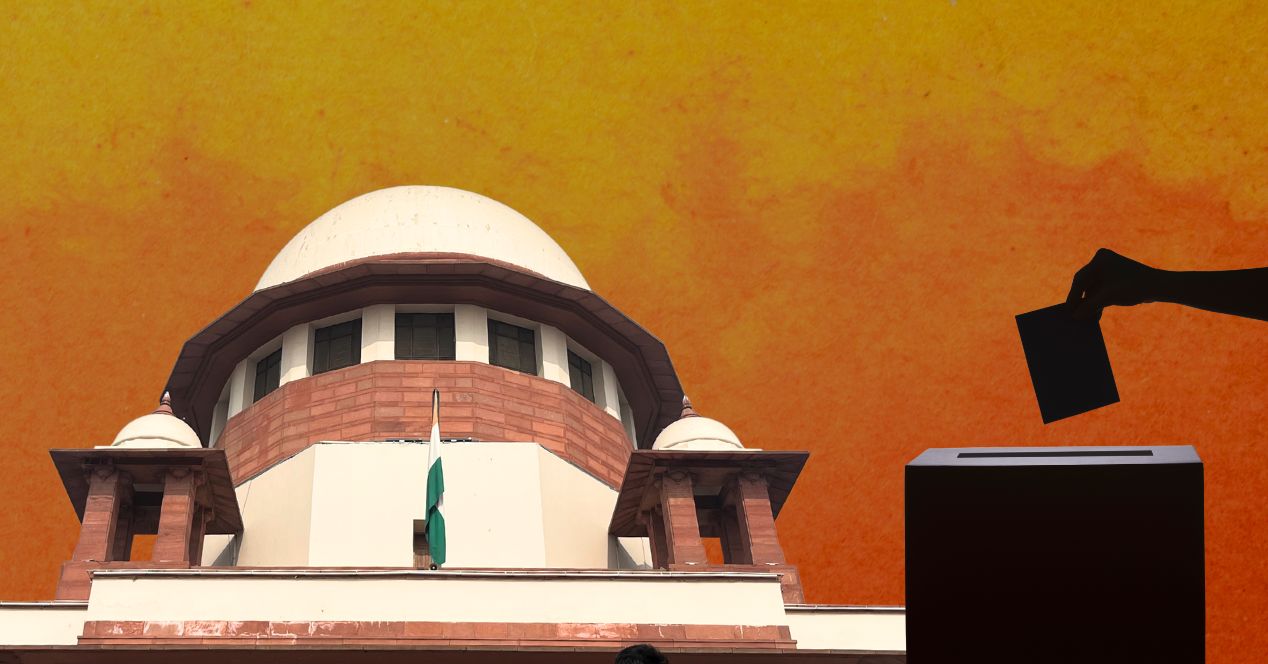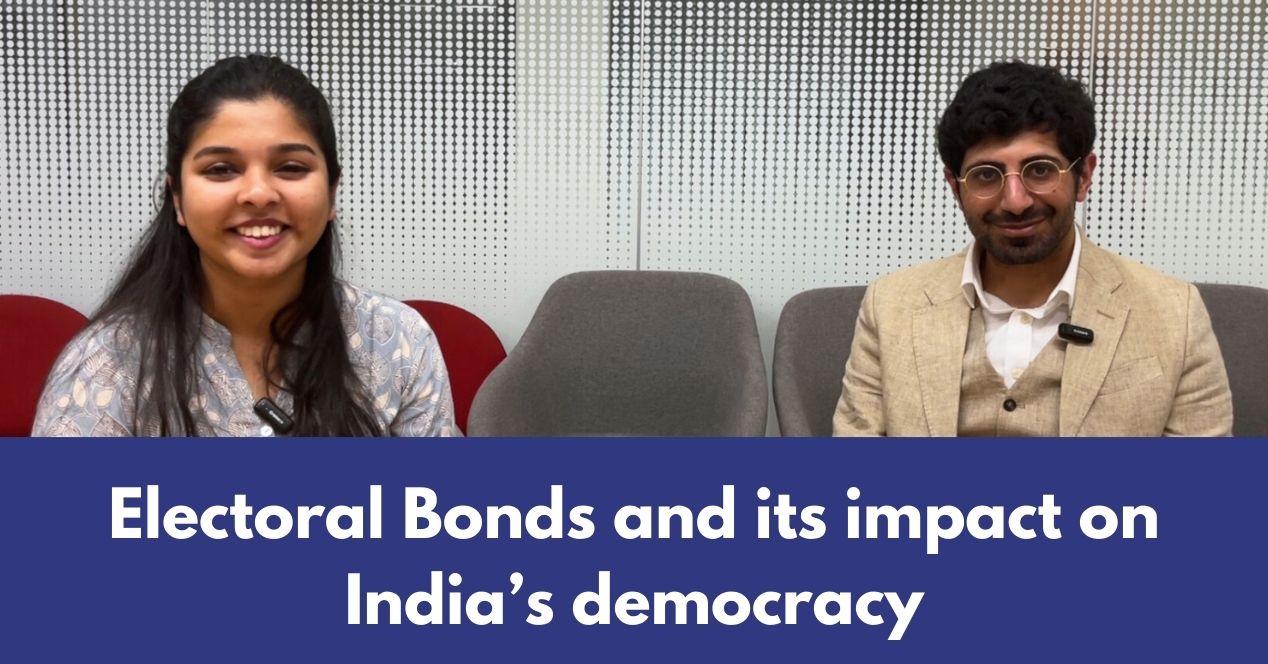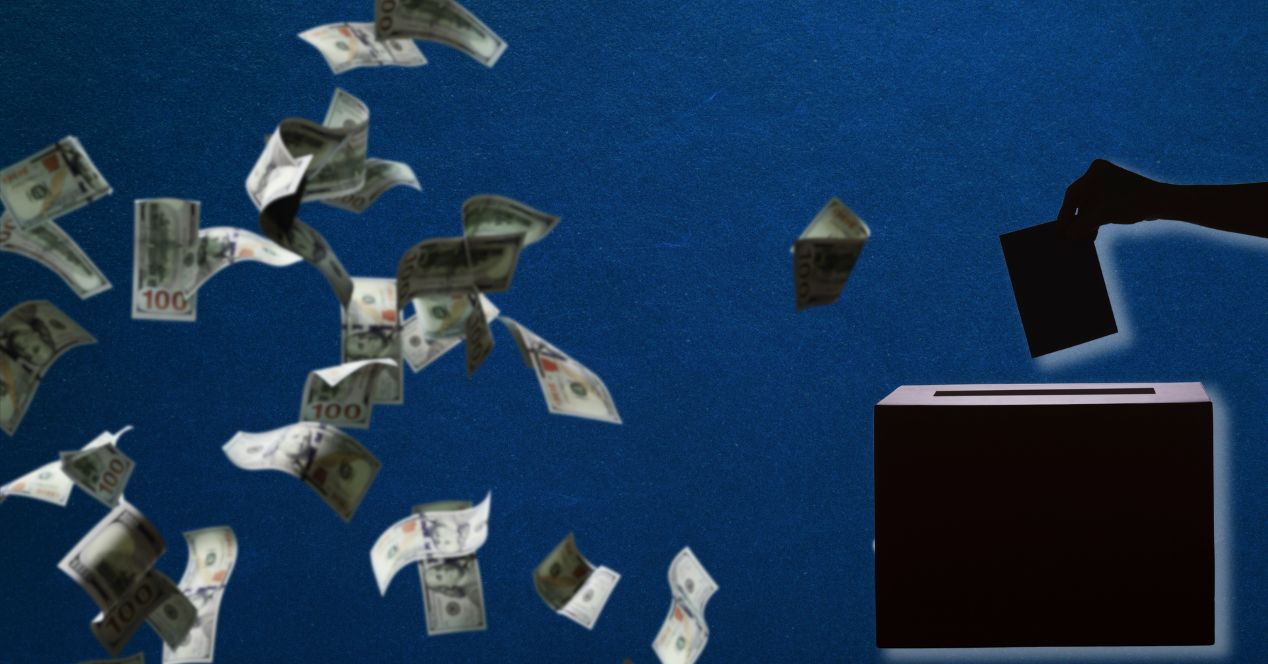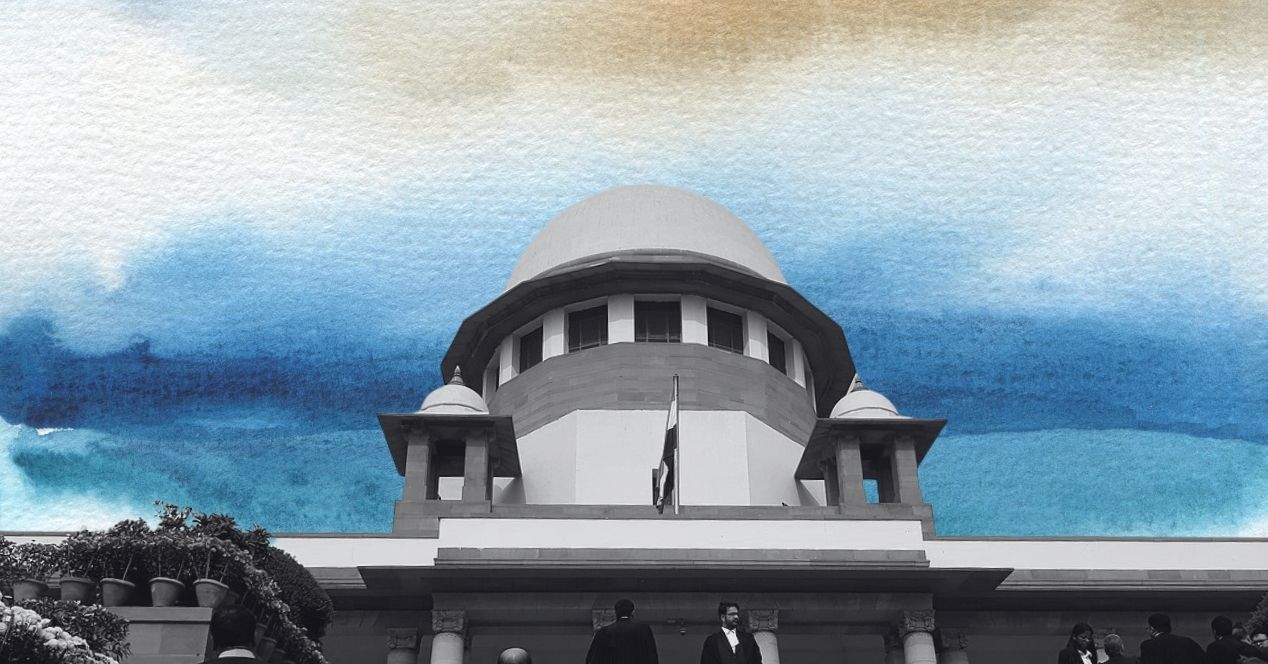Analysis
Five election-related cases in the Court’s docket in the run-up to the 2024 polls
The what, when and why of the top court’s decisions in these key cases could have significant ramifications on India’s electoral landscape
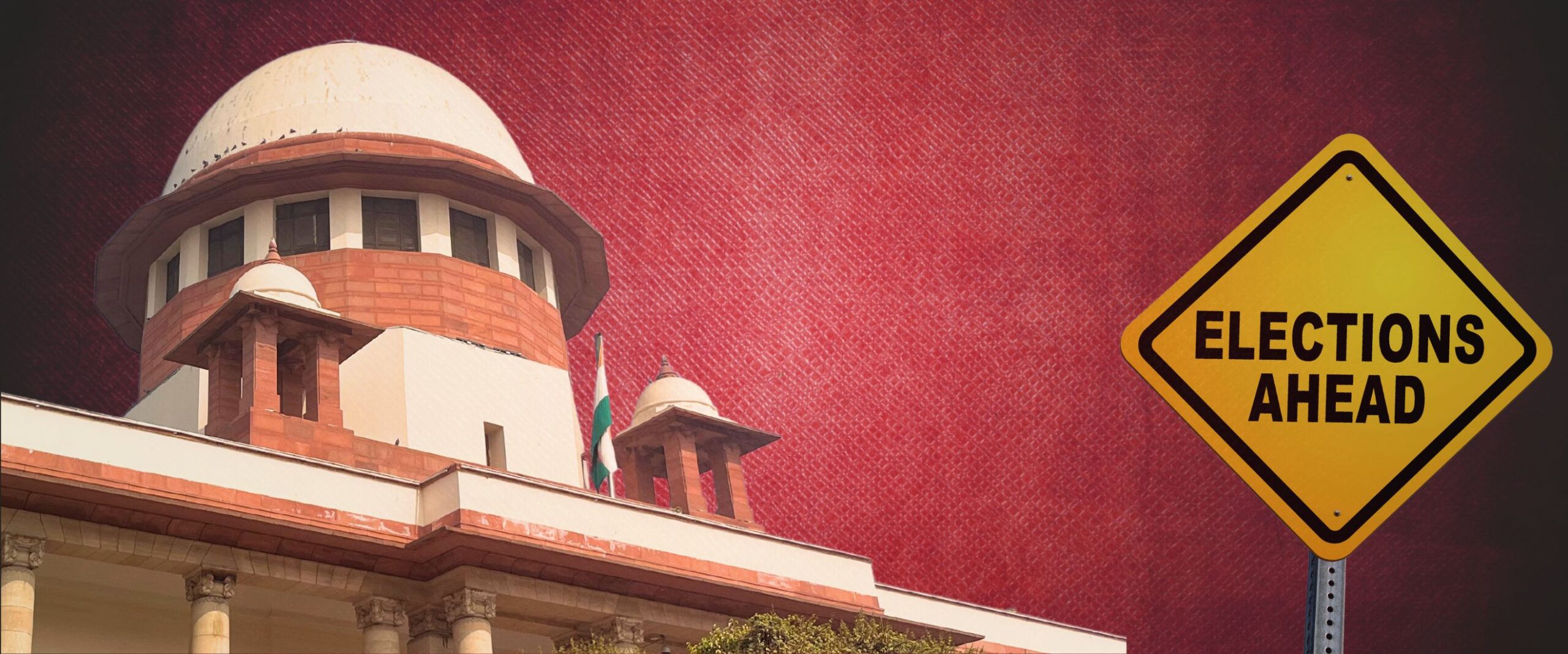
In 2024, the Supreme Court is likely to hear and rule on cases having vital significance to the Indian polity. As India heads towards a big general election this summer, the Court’s decisions (or the lack of them), could influence how political parties decide to strategise, campaign and fundraise.
One decision that’s expected before the campaign trail hots up is the one on the Electoral Bonds Scheme, which was challenged for introducing even more opacity to political funding. The Court had reserved judgement in the matter last year. It is also hearing challenges against the process of appointing members to the Election Commission of India (ECI), where its earlier decision to place one of its own into the selection system was undone during the Winter Session of Parliament.
A case on the legality of the freebies that are widely promised in election campaigns also remains with the Court.
The decisions the Court makes and when it makes them could have significant ramifications on the electoral landscape over the next five years.
Privacy versus transparency in the Electoral Bonds Scheme case
This year, a five-judge Constitution Bench will deliver the much-anticipated judgement in the challenge to the Electoral Bonds Scheme. The Bench led by Chief Justice D.Y. Chandrachud reserved its judgement in the case on 2 November 2023. At the heart of this case was the question of balance between a donor’s right to privacy and the voter’s right to a transparent election process.
Electoral bonds are banking instruments in the nature of promissory notes that do not contain the name of the buyer or payee.
The petitions had contended that the scheme legitimises “corruption at a huge scale” and furthers lack of transparency in political funding. In practice, any donor who makes a substantial donation would inform the party, especially if there is an element of quid pro quo involved. The Union, on the other hand, has argued that the purpose of the scheme was to keep the donors’ identity secret while ensuring that donations were made only out of fully tax-paid money.
Electoral Bonds are sold once every quarter for a period of ten days. Most recently, they were sold between 2 and 11 January 2024. However, given that 2024 is an election year, bonds will be sold for an additional period of 30 days this year.
Critics of the scheme have pointed out that the lack of transparency in the scheme deprives voters of the necessary information on the funding of political parties.
Challenge to the Election Commission Act to be heard only in April
Election Commissioner Anup Chandra Pandey is set to retire in mid-February 2024. As per the Chief Election Commissioner and other Election Commissioners Act 2023, a committee comprising the Prime Minister, a cabinet minister of the Prime Minister’s choosing and the Leader of the Opposition in the Lok Sabha will decide who will replace Pandey.
Meanwhile, a challenge against the Act remains pending before the Supreme Court. The petition, filed on 2 January 2024 by Dr. Jaya Thakur, Madhya Pradesh Mahila Congress Committee General Secretary, contends that the Act “violates the principles of free and fair elections.”
The petition also contends that the Act disregards the Constitution Bench decision in Anoop Baranwal v Union of India. In this case, a five-judge Bench led by Justice K.M. Joseph constituted a committee comprising the Chief Justice of India, the Prime Minister and the Leader of the Opposition to advise the President on appointments to the ECI, until Parliament would frame an appropriate law on the matter.
On 12 January 2024, a Bench of Justices Sanjiv Khanna and Dipankar Datta heard the case. Senior Advocate Vikas Singh, appearing for a petitioner, sought an ex-parte stay on the Act. The Bench refused to order a stay but issued notice to the Union. The implication of this is that the vacancy opening up in February will be recommended by a committee comprising two members of the ruling party and the Leader of the Opposition. The case is expected to be heard again in April 2024, the month that the first phase of polling in the general election is expected to kick off.
Electoral freebies or bribes in disguise?
In January 2022, Advocate Ashwini Kumar Upadhyay moved the Supreme Court challenging the practice of pre-election promises or electoral freebies. Such promises, he contended, were made by political parties “without any assessment of the financial implications on the State.”
The petitioners contended that freebies go against the spirit of “responsible electioneering”. The petitioners also submitted that the practice skews the playing field between political parties and amounts to a corrupt practice under the Representation of People’s Act, 1951 (RPA) and bribery under the Indian Penal Code, 1860. They urged the Court to direct the ECI to add a condition to the Election Symbols Order, 1968 barring political parties from distributing “irrational freebies from public funds.”
In August 2022, the Court referred the matter to a bench of three judges. In its reference Order, the Court noted that freebies are granted using taxpayer money “only for increasing the popularity of the party and electoral prospects.” However, the Court also recognised that all promises cannot be equated with freebies. Some of them may relate to “welfare schemes or measures for the public good”.
Previously, a Division Bench in S. Subramanian Balaji v Tamil Nadu (2013) held that pre-election promises do not constitute corrupt practices under the RPA and directed the ECI to frame guidelines.
The petitions were last heard on 23 November 2023.
How long can a casual vacancy continue?
A casual vacancy occurs when the seat of a lawmaker becomes “vacant” during the assembly’s term. This can happen due to death, resignation or removal of a member from office.
To ensure that people of the concerned constituency are not left without any representation, Section 151A of the RPA stipulates that a bye-election to fill that vacancy must be held within six months from the date of occurrence of the vacancy.
However, Section 151A contains two exceptions: (i) when the remainder of the term from the time of the vacancy is less than one year; (ii) if the ECI, in consultation with the government, certifies that it is difficult to hold polls within six months of the occurrence of the vacancy.
On 8 January 2024, the Supreme Court, while dealing with a casual vacancy in Pune from March 2023, stressed that “there must be some duty cast on the Election Commission to proceed with alacrity the moment a vacancy occurs.”
The Bench of Chief Justice D.Y. Chandrachud and Justices J.B. Pardiwala and Manoj Misra said this even as it set aside a Bombay High Court judgement that held that neither “administrative preoccupation” nor a “burden on the exchequer” are reasons for the ECI to refuse to conduct a bye-election. The High Court had even found merit in the petitioner’s contention that there was no proper “consultation” with the Central Government for the ECI to certify that it was difficult to hold the bye-election.
In its Order, the Supreme Court observed that Section 151A of the RPA needs to be interpreted and listed the matter to be heard on 12 March 2024.
Should politicians chargesheeted for ‘serious offences’ be debarred from contesting?
In September 2020, a writ petition before the Supreme Court prayed that candidates who have been framed for “serious offences” be debarred from contesting elections.
Alternatively, the petition asks the Court to direct the ECI to amend the 1968 Symbols Order to make it conditional upon political parties to disallow such persons if they want recognition as a national or state party.
The 244th Law Commission report from 2014 recommended amending the RPA to prevent the “criminalisation” of politics. The report suggested the inclusion of a provision to disqualify persons charged with offences punishable with at least five years of imprisonment if the charges were filed more than one year before the scrutiny of nominations for an election.
In April 2023, the Union Government opposed the petition, stressing that an accused is considered innocent until proven otherwise. The Union also questioned the use of the phrase “serious offences” in the petition, reasoning that every prosecuting agency would seek to persuade the trial court that charges against a candidate are serious.
The petition was listed on 29 January 2024 but was adjourned for hearing on that day. It is now listed for 16 April 2024.

